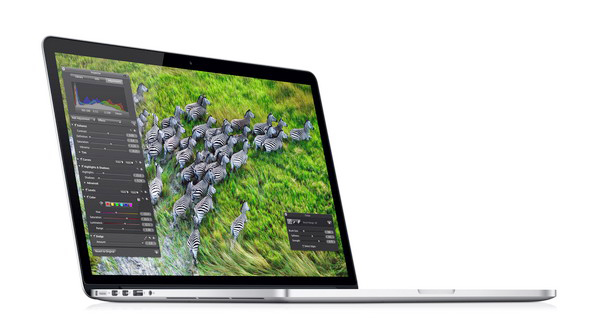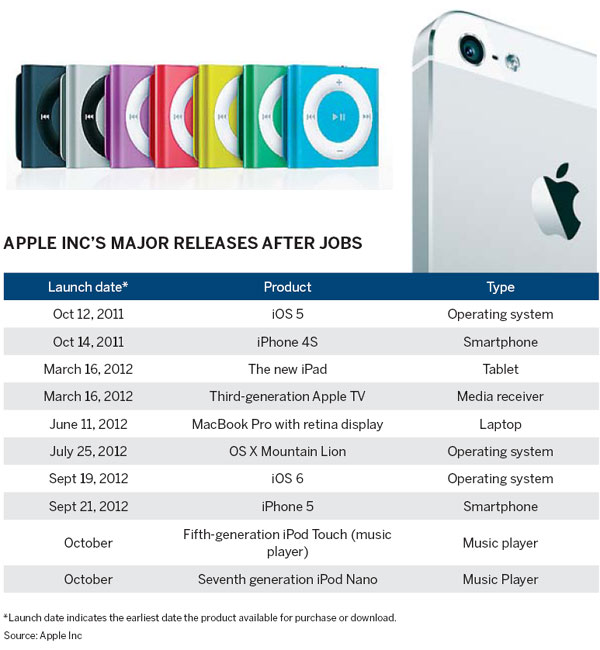The most valuable US company still shows an indifferent attitude toward the Chinese mainland, soon to be the world's largest smartphone market, reports Gao Yuan.
Apple Inc is finding it hard to maintain its innovation edge and clear lead in China's smartphone market a year after the death of Steve Jobs. Just as it did during Jobs' era, the most valuable company in the United States still shows an indifferent attitude toward the Chinese mainland, even though the country is set to become the world's largest smartphone market.
|
 People throng to an Apple store in Hong Kong early on Friday morning to buy the newly released iPhone 5. [Photo / China Daily] |
China went without mention at the event to launch iPhone 5, the latest in the iPhone series, and there was indecision over the date for its launch in the country. These two facts show that Apple does not regard China as a primary market.
Related reading: Apple unveils 4G-enabled iPhone 5
China is usually placed in the fourth-to-sixth category market for new products. It is clubbed with countries such as Latvia, Jamaica and Indonesia, which is ironical because global research firm Internet Data Center says that China will overtake the US by the end of the year to become the world's largest smartphone market.
Almost all Apple's premier products have been launched in China after making their global debut. This is true of iPad 2, the new iPad, iPhone 4S and now iPhone 5. Although foreign electronic gadgets have to go through a complicated approval process before being released in the Chinese mainland market, a delay of more than six months cannot be considered usual.
Some media outlets have said Jobs is to blame for Apple ignoring China, saying the IT legend placed the Chinese mainland market in the category of much smaller countries like Vietnam, Laos and Malaysia. Nothing proves the amateurishness of the categorization than the sale of over 31 million smartphones on the mainland in the first quarter of this year, a figure higher than the entire population of Malaysia, according to Beijing-based research firm Analysys International's data.
Jobs didn't visit China despite getting an opportunity to do so in 1985 when Apple was granted a license to sell computers in the country. Jobs was invited to sign a deal at the Great Hall of the People in Beijing, but in a tactical move he let John Sculley, then CEO of Apple, visit China and strike the deal. At that time, Jobs was jostling with Sculley for control of the company and planned to oust him in a coup while he was away in China. But the coup failed and Jobs left Apple to set up a new company, NeXT.
Chinese Apple fans hoped Apple's new CEO Tim Cook would lift China to its due level in the company's plans. Cook visited China months after filling Jobs' shoes and became the first Apple CEO to visit the home of the world's second largest economy. At a meeting with Vice-Premier Li Keqiang, Cook said Apple would work more closely with China "in every possible way". In an earnings call in July, Cook reiterated that China was "key" to the company's results.
Apple had pledged to open more brick-and-mortar stores on the Chinese mainland, targeting second-tier cities, years ago. But the number of Apple stores on the mainland has remained at five: three in Shanghai and two in Beijing.
Reuters reported in June that Apple might open two more stores on the mainland, one in Chengdu, capital of Sichuan province, and the other in Shenzhen, Guangdong province. The stores remain on paper, that is, if they were ever planned.
Loss of mojo
"Steve's brilliance, passion and energy were the source of countless innovations that enrich and improve all of our lives." That's how Apple's board of directors honored the company's long-time CEO hours after his death.
It is too early to say how the board would appraise the contribution of Cook, but some analysts argue that Apple is losing its mojo, that is, innovation, in the "reign" of the new CEO. Although iPhone 5 is still a very competitive product and Apple will remain the market leader for quite some time, the company is clearly losing its edge to competitors such as Nokia and Samsung, said Liu Peng of Analysys International.
The iPhone series of products were the eighth best-selling mobile phones in the first quarter of this year, accounting for just 3 percent of the market share. In contrast, Samsung accounted for more than 20 percent of the market share, and some local brands, including Huawei, ZTE and Lenovo, were enjoying way bigger market shares than Apple, Analysys International said.
|
 |
On Sept 12, when Phil Schiller, Apple's senior vice-president of global marketing, reviled iPhone 5 in San Francisco, the audience did not seem surprised, because the long-awaited gadget had failed to trigger the wow effect and partly because the event was merely a confirmation of online rumors. International tech websites had exposed the key features of iPhone 5 weeks ahead of the launch.
"When you see the magic show too often, magic starts to fade away," wrote USA Today, citing Recon Analytics analyst Roger Entner. The surprise-free event, however, provided a golden opportunity for the audience to mull over a wild yet interesting question: What would have Jobs said about Apple today?
